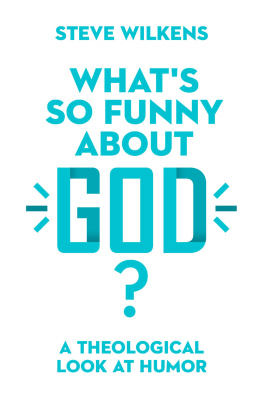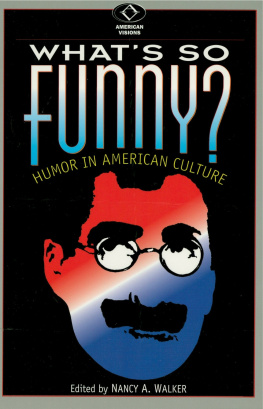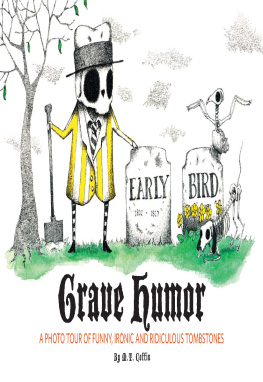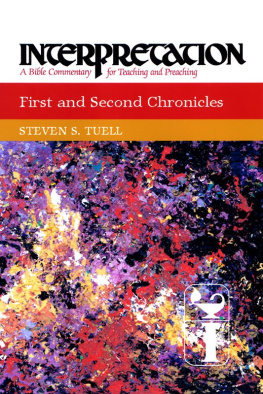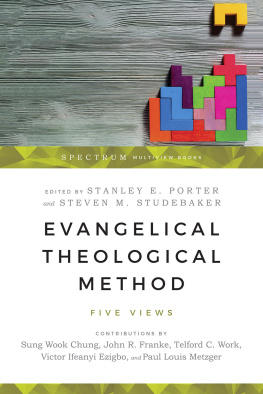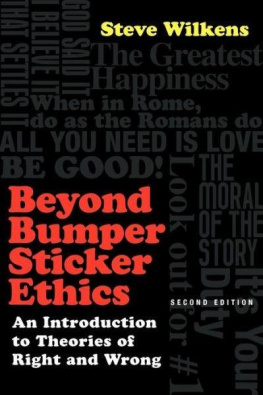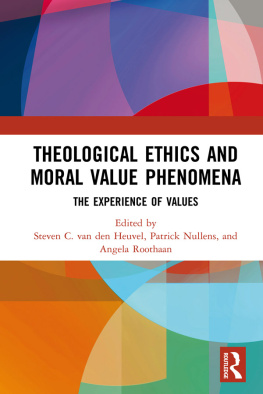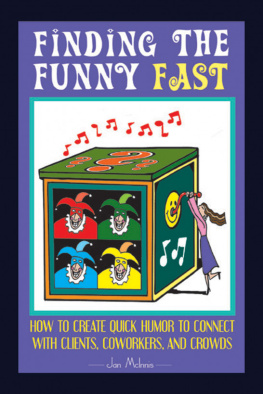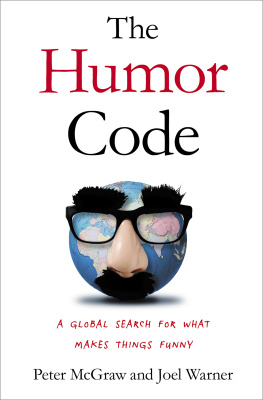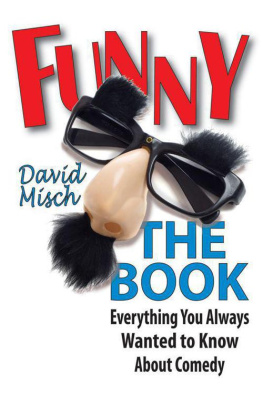Steven Wilkens - What’s So Funny About God?: A Theological Look at Humor
Here you can read online Steven Wilkens - What’s So Funny About God?: A Theological Look at Humor full text of the book (entire story) in english for free. Download pdf and epub, get meaning, cover and reviews about this ebook. year: 2019, publisher: InterVarsity Press / IVP Academic, genre: Religion. Description of the work, (preface) as well as reviews are available. Best literature library LitArk.com created for fans of good reading and offers a wide selection of genres:
Romance novel
Science fiction
Adventure
Detective
Science
History
Home and family
Prose
Art
Politics
Computer
Non-fiction
Religion
Business
Children
Humor
Choose a favorite category and find really read worthwhile books. Enjoy immersion in the world of imagination, feel the emotions of the characters or learn something new for yourself, make an fascinating discovery.
- Book:What’s So Funny About God?: A Theological Look at Humor
- Author:
- Publisher:InterVarsity Press / IVP Academic
- Genre:
- Year:2019
- Rating:5 / 5
- Favourites:Add to favourites
- Your mark:
- 100
- 1
- 2
- 3
- 4
- 5
What’s So Funny About God?: A Theological Look at Humor: summary, description and annotation
We offer to read an annotation, description, summary or preface (depends on what the author of the book "What’s So Funny About God?: A Theological Look at Humor" wrote himself). If you haven't found the necessary information about the book — write in the comments, we will try to find it.
What’s So Funny About God?: A Theological Look at Humor — read online for free the complete book (whole text) full work
Below is the text of the book, divided by pages. System saving the place of the last page read, allows you to conveniently read the book "What’s So Funny About God?: A Theological Look at Humor" online for free, without having to search again every time where you left off. Put a bookmark, and you can go to the page where you finished reading at any time.
Font size:
Interval:
Bookmark:
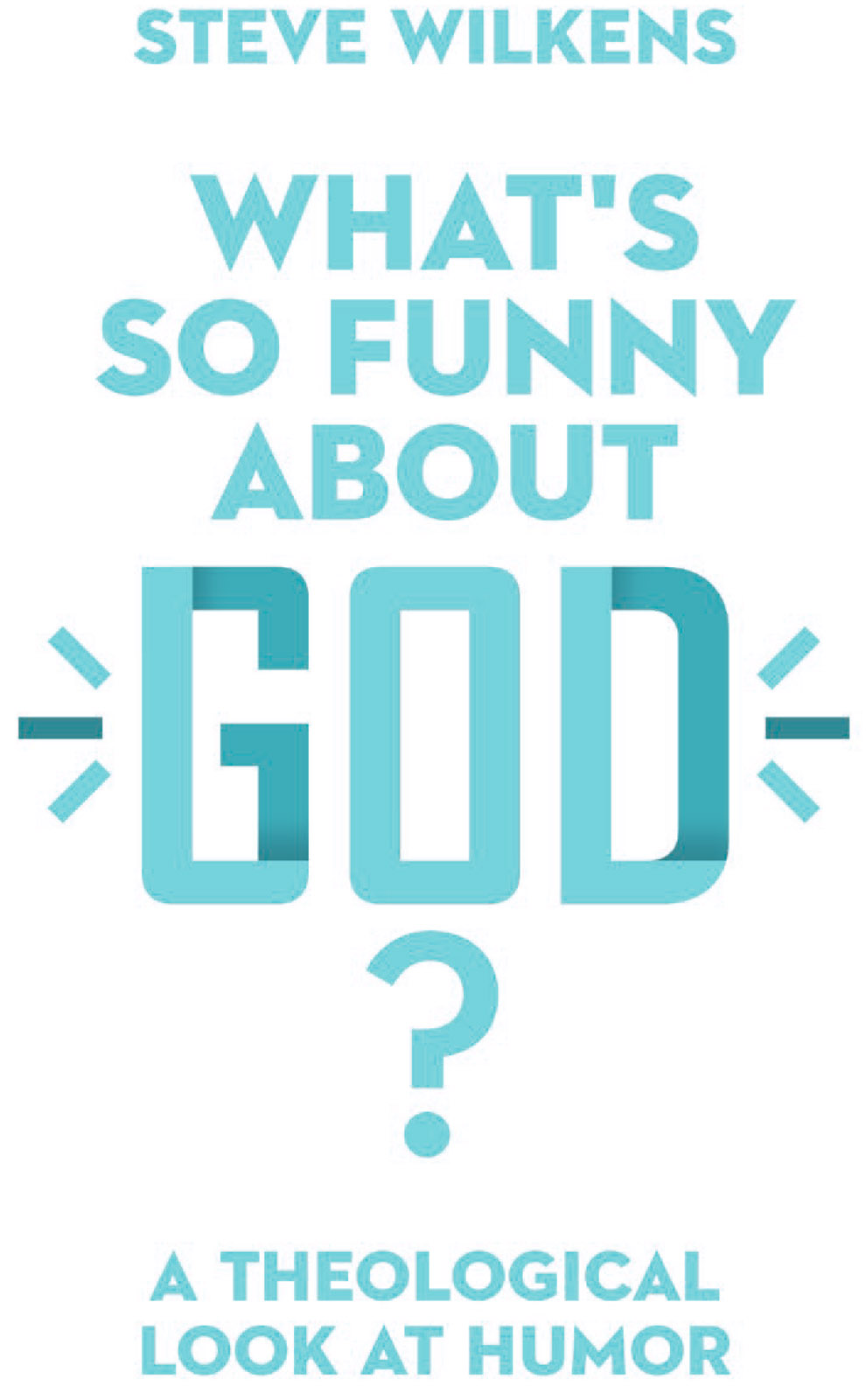

InterVarsity Press
P.O. Box 1400, Downers Grove, IL 60515-1426
ivpress.com
2019 by Steve R. Wilkens
All rights reserved. No part of this book may be reproduced in any form without written permission from InterVarsity Press.
InterVarsity Pressis the book-publishing division of InterVarsity Christian Fellowship/USA, a movement of students and faculty active on campus at hundreds of universities, colleges, and schools of nursing in the United States of America, and a member movement of the International Fellowship of Evangelical Students. For information about local and regional activities, visit intervarsity.org.
Scripture quotations, unless otherwise noted, are from the New Revised Standard Version of the Bible, copyright 1989 by the Division of Christian Education of the National Council of the Churches of Christ in the USA. Used by permission. All rights reserved.
Cover design and artwork: David Fassett
Interior design: Jeanna Wiggins
ISBN 978-0-8308-5545-2 (digital)
ISBN 978-0-8308-5267-3 (print)
This digital document has been produced by Nord Compo.
TO MY BROTHER-IN-LAW
Randy Whitcomb, MD
Running the race with perseverance
None of the book projects Ive undertaken up to this point has relied so heavily on the support and patience of family, friends, and colleagues, and I am truly grateful for the advice, feedback, and encouragement of so many. Indeed, the scope of those who have offered help is so broad that I know names will be omitted that surely should be here. Ill trust in your forgiveness where that has occurred.
First and foremost, my thanks to my wife, Debra, and children, Zack and Zoe. Over the years, they have been subjected to frequent barrages of dad humor and have been gracious enough to translate them as exactly what they are: awkward attempts to express my deep love for them. I forgive all three for erroneously insisting that sometimes I have a tendency to tell the same joke more than once.
A heavy debt of gratitude is owed to my colleagues in the School of Theology at Azusa Pacific University. They have helped me field-test jokes and quips, read portions of drafts, and acted as a sounding board for ideas, sometimes involuntarily so. Key among those individuals are Don Thorsen, Gregg Modor, Roger White, Justin Smith, Paul Shrier, and Keith Reeves, who put up with a lot of discussion about humor and theology during coffee breaks and cafeteria meals. Brian Lugioyo, Rob Muthiah, Kelly Thomas, Deona Hairston, Jill MacLaren, Sarah Montez, Jacque Winston, Barbara Hayes, and many other staff and faculty colleagues found themselves trapped behind desks and unable to escape my requests for ideas and responses. Nonetheless, all kindly offered feedback on snippets of humor. It is such a privilege to work with people who are not just highly competent at their work but are truly nice folks.
Several of my colleagues have been quite helpful in sharing their deep knowledge of Scripture. Of particular note, Justin Smith, Fed Roth, Eunny Lee, Bob Mullins, Traci Birge, Keith Reeves, Tim Finlay, and Bill Yarchin have all provided guidance on the nuances of Scripture that elude amateur exegetes such as myself. Readers of this book will no doubt conclude that I should have consulted their advice on numerous other issues, and they will be right.
I have been blessed to teach philosophy at Azusa Pacific University for the past thirty-two years and appreciate the research and writing opportunities they provided through my sabbatical, a CREV Fellowship, and the summer writers retreat.
Finally, my history with IVP Academic stretches back almost thirty years, and my appreciation for their expertise, patience, and kindness continues unabated. I want to express special thanks to my editorsDavid Congdon, who was willing to take on an outside-the-box book idea, and Jon Boyd, who ushered the project through the final stages. Their wise guidance and the skills of the entire team have once again smoothed the path through the long process.
 Why dont sharks attack lawyers?
Why dont sharks attack lawyers?
Professional courtesy.
Of course, we can also turn this joke around and get a different result:
Why do sharks attack lawyers?
They dont like the competition.
Theology usually doesnt grant much professional courtesy to humor. Dont get me wrong. Christians, surprisingly, are almost like normal people; most of us seem to like humor. Its sprinkled throughout our everyday conversation, and we watch TV sitcoms as much as other groups. If youre looking for church jokes, a quick internet search reveals that we have found plenty to laugh about in this niche of our lives. When it comes to finding thoughtful Christian reflection on the topic of humor, though (to modify the late Rodney Dangerfields signature line): Humor doesnt get no respect. Its rare to find a reflective discussion on the relationship between Christianity and humor. So why do Christian thinkers have so little interest in a topic that plays a central role in peoples lives? After all, theologians stick their noses into just about every other subject and take each of them pretty seriously. But when it comes to humor, we often listen for their take on the matter and hear only crickets, punctuated occasionally by negative comments before they again revert to silence.
Mr. McCabe thinks that I am not serious but only funny, because Mr. McCabe thinks that funny is the opposite of serious. Funny is the opposite of not funny and nothing else.
Perhaps the main reason Christian scholars havent taken humor seriously is that they dont think that humor is serious, a view confirmed for many by the plethora of poop jokes available. Thus, they may see humor as the competition, just another thing that vies for our attention and distracts from thinking earnestly about God. But Im with Chesterton here. Funny and serious are not opposites. To joke about something requires that we deem it sufficiently important to search for the humor in it, and I will argue later in the book that even poop jokes may be more profound than we recognize. Moreover, we should also acknowledge that humor frequently draws us into the big questions of our existence. Think of all the jokes you know (but possibly cant tell some people) about love, death, God, sex, children, good and evil, and politicsmeaning of life sorts of topics. In this way, humor certainly pays attention to questions of deep concern to theology, so why hasnt the attention (not to mention the affection) been mutual? The attitude that humor negates seriousness also lacks consistency. Other parts of our lives that we take seriouslyfamily, friendships, work relationships, leisure, and church lifehave room for laughter and are enriched by it. It seems that theologys lack of professional courtesy to humor relies on a deficient definition of seriousness.
Font size:
Interval:
Bookmark:
Similar books «What’s So Funny About God?: A Theological Look at Humor»
Look at similar books to What’s So Funny About God?: A Theological Look at Humor. We have selected literature similar in name and meaning in the hope of providing readers with more options to find new, interesting, not yet read works.
Discussion, reviews of the book What’s So Funny About God?: A Theological Look at Humor and just readers' own opinions. Leave your comments, write what you think about the work, its meaning or the main characters. Specify what exactly you liked and what you didn't like, and why you think so.

